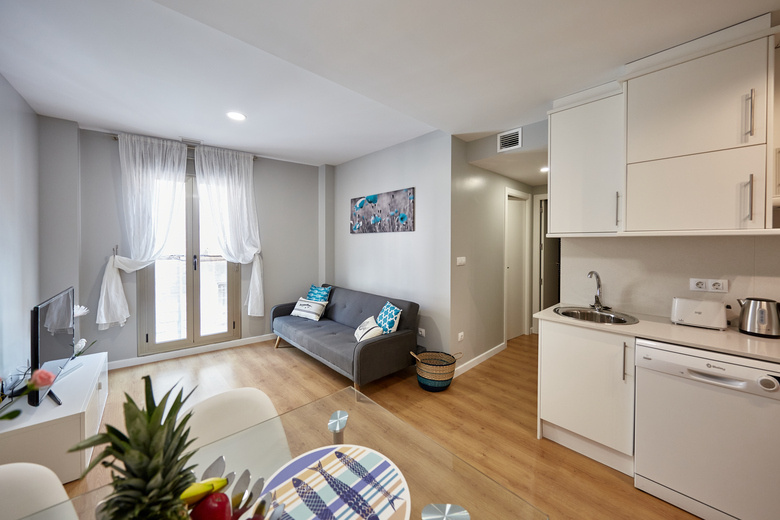Short-Term vs. Long-Term Rentals in Spain: Pros, Cons & Key Tips
Deciding between short-term and long-term rentals can be a challenging decision for property owners in Spain. Both options come with unique advantages and drawbacks, making it essential to weigh the pros and cons based on your goals, lifestyle, and property type. If you would like to learn more about the possibility of developing a business such as renting out property, you can contact Expert Property Management in Alicante for advice. This guide explores the critical factors to consider, helping you make an informed choice.
Short-term rentals, often used for holiday lets or temporary stays, are typically rented out for days or weeks. This rental model has gained popularity thanks to platforms like Airbnb and Booking.com. However, it is not without its challenges.
Higher Income Potential: Short-term rentals usually command higher nightly rates, especially during peak tourist seasons. This can result in significantly higher revenue compared to long-term leases.
Flexibility: Owners have the flexibility to use the property for personal stays or adjust rental availability based on their schedule.
Frequent Tenant Turnover:
High turnover allows for regular property inspections, reducing the likelihood of long-term damage.
Targeted Markets: You can cater to different demographics, such as vacationers, business travelers, or digital nomads, depending on your property's location and amenities.
Increased Management Effort: Managing bookings, cleaning, and maintenance can be time-consuming. Hiring a property manager can help but will eat into profits.
Seasonal Demand: Earnings can fluctuate dramatically, with off-season periods yielding significantly less income.
Regulations and Taxes: Many Spanish regions, like Catalonia and the Balearic Islands, impose strict rules and require licenses for short-term rentals. Failing to comply can result in hefty fines.
Wear and Tear: High tenant turnover can lead to increased wear and tear on the property, necessitating more frequent repairs and upgrades.

Long-term rentals are typically leased for a minimum of six months, often providing owners with steady, reliable income. They cater to residents, expatriates, and students seeking a more permanent living arrangement.
Stable Income: A fixed monthly rent provides consistent cash flow, which is particularly beneficial for owners seeking financial stability.
Lower Management Requirements: With fewer tenant changes, you’ll spend less time coordinating move-ins, move-outs, and maintenance.
Legal Protections: Spanish rental laws offer clear guidelines for long-term leases, providing legal security for both landlords and tenants.
Reduced Seasonal Dependence: Unlike short-term rentals, long-term leases are less affected by seasonal fluctuations.
Lower Income Potential: Monthly rent for long-term leases is generally lower than what could be earned from short-term stays.
Limited Access to Property: Long-term tenants have the right to use the property without interruption, restricting your ability to occupy or repurpose the property during the lease term.
Tenant Risks: Non-payment of rent or disputes with tenants can lead to lengthy legal proceedings. It’s crucial to conduct thorough background checks.
Maintenance Challenges: While tenants are responsible for minor upkeep, long-term leases can still result in significant wear and tear over time.

1. Location of the Property
Tourist Hotspots: Short-term rentals may perform better in areas with high tourist demand, such as Barcelona, Alicante, or Marbella.
Residential Areas: Properties in quieter, residential neighborhoods are more suited to long-term rentals.
2. Your Financial Goals
Determine whether you prefer steady income or are willing to handle seasonal fluctuations for potentially higher earnings.
3. Time and Effort
Assess how much time you can dedicate to managing the property. Short-term rentals require more hands-on effort, whereas long-term rentals offer a “set it and forget it” model.
4. Legal and Tax Implications
Research local regulations in your property’s region. For instance, Andalusia and Madrid have distinct rules regarding rental licenses and taxes for short-term lets.
Choosing between short-term and long-term rentals in Spain depends on your financial goals, availability, and the property’s location. Short-term rentals can provide lucrative returns but demand active management and adherence to strict regulations. On the other hand, long-term rentals offer stability and minimal effort but may generate less revenue. Carefully evaluate your priorities and consider seeking advice from a property management expert or a local real estate agent to ensure your investment thrives in Spain’s dynamic rental market.
Name: Prof. B.L. Sah
Address: UGC-Academic Staff College, The Hermitage, Kumaun University, Nainital, Uttarakhand
Important Links